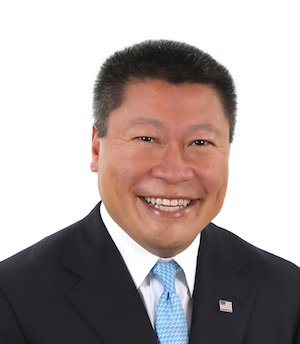
Fairfield County, CT - Thursday, April 8, Senator Tony Hwang (R-28) moderated an Informational Forum on the proposed project to divert water within the Greater Bridgeport system (which includes the towns of Bridgeport, Fairfield, Weston, Easton and the Mill River Watershed) to lower Fairfield County towns by increasing from the current 6.9 million gallons per day (MGD) and doubling to 14.2 MGD for the next 25 years.
The program and the insightful panelists provided a much needed educational conversation ahead of the May 4 Public Hearing to be held by the CT Department of Energy and Environmental Protection on this diversion application.
To register to participate in the hearing, click here:https://ctdeep.zoom.us/meeting/register/tJIsd-CopzwoE9Q8AqqTVVw6kNxWdVLPdS7O
Senator Tony Hwang moderated an expert panel which included the Mill River Wetland Committee (MRWC-Fairfield.org/), River Alliance of Connecticut (RiversAlliance.org), Trout Unlimited (cttrout.org) and other long serving water and environmental advocates.
While the CT Department of Energy and Environmental Protection (DEEP), CT Public Utilities Regulatory Authority (PURA) and Aquarion Water Company ( Eversource) (AquarionWater.com) were all invited, they declined to participate.
You can WATCH the forum here: https://youtu.be/89r4VfooElM?t=6
Denise Savageau, who served for many years as the conservation director for the town of Greenwich, stressed the importance of public input through processes that will alter the flow of water. With lower Fairfield County receiving more than double the amount of water they do currently, it is critical to maintain the conservation efforts and “make sure that the restrictions are not lifted with the additional supply.
Alicea Charamut from the River Alliance of Connecticut demonstrated that Connecticut’s water usage is outpacing the water flow and explained that there are a number of strategies to bring that situation under better control. Demand management, land planning, green development, and supply management are all options, and “finding a new source” of water to mitigate a supply unable to keep up with demand is at the very bottom of the list of alternatives.
Kate O’Mahony from the Mill River Wetland Committee shared how she came to be part of the organization. A nurse by day, she has always loved the outdoors and she emphasized that anyone who is a fan of their surroundings or having access to clean drinking water is also an environmentalist. As she became more involved with the proposed project involving the Mill River watershed she was “shocked at the lack of transparency,” and the lack of data that is being collected to analyze the water levels and temperatures. She is also not convinced that all other options were exhausted.
Jack Kovach from Connecticut’s chapter of Trout Unlimited shared how varying the courses natural streams take affect the fish population, other wildlife and plants. The depth and temperature of the water have a domino effect on fish, their food sources and their ability to find thermal refuge. He agreed that input and assistance should be sought out from the local activists and fishermen who are able to spend the time tracking the water levels and cleanliness. He suggested that the project’s 25-year commitment be reduced to 5 years so that the change can keep all stakeholders accountable to continue pursuing conservation efforts and keep the conversation going.
Margaret Miner, a nationally recognized water conservation expert, reminded that educating people and empowering them to get involved will be key components in implementing a cultural shift in how we manage water use and flow. She emphasized that in Connecticut communication of the common mission water conservation and usage is complex when there are upwards of 5 State agencies that have a role in water control.
Senator Tony Hwang shared, “I am so honored to moderate this important conversation with local and state leaders on water sustainability and conservation. The urgency of Aquarion’s (Eversource) pending permit application to divert the Bridgeport system water is certainly deserving of comprehensive public review and input. These experts have increased my awareness tonight and through our previous conversations that ‘Everywhere is a watershed’ and we as public leaders have an important need to treat these precious natural resources with the precaution and protection to ensure their sustainability for the present and future generations that follow. Therefore if we are to divert our water assets to lower Fairfield County, we need to have proper data, controls and protocols in place for how the water will be used and replenished. I encourage my friends and neighbors to participate at the May 4th DEEP public forum, and I encourage people to contact these organizations or my office to get informed and involved.”